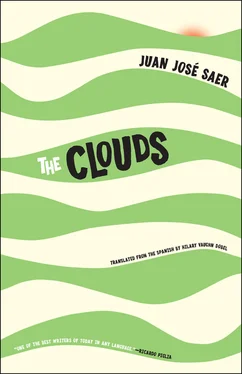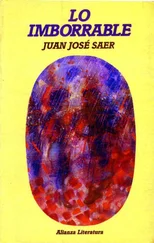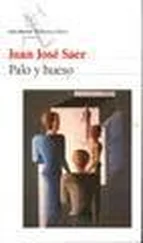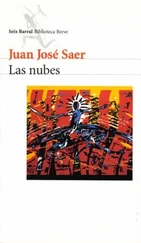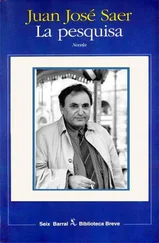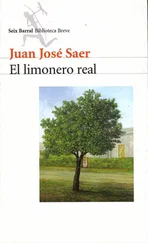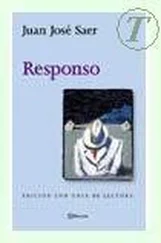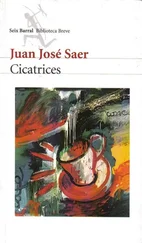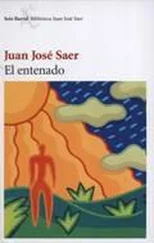Before leading me to his son’s room, Señor Parra, answering a query of mine, told me of the treatments prescribed by the previous doctors who had examined Prudencio, none of which yielded the slightest result. The two doctors, chapter-certified for ongoing practice in the city, had treated him in the typical fashion, but barely saw him on their visits now, declaring him incurable. Another two or three doctors who were passing through the city were consulted, and one of them had recommended baths in the Salado River, declaring the quality of its water and especially of its clay most advisable in the treatment of melancholia. Señor Parra told me that although Prudencio was terrified to plunge into the river, he readily consented to being thoroughly coated with the banks’ reddish mud and would sprawl in the sun to dry, to the point that it was almost always a struggle to remove the layer of crusted clay that covered him. The previous summer, however, his stupor had become so serious that it had been impossible to take him from his room and bring him to the riverbank.
Señor Parra led me to his son’s room. A smell of enclosure, of strange substances mixed and marinated — of abandonment — pervaded despite the order that reigned within the soberly furnished bedroom, overheated by the brazier installed by the window to be burnt all night. Young Prudencio was propped up in bed, under blankets, sunk into the shadows, and his head, topped with a white nightcap, lolled on a heap of pillows. Although its occupant’s eyes were closed, the bed looked as though it had just been made, but Señor Parra explained to me that the young man remained completely immobile as he slept, so in the morning the bed always gave the impression of being untouched. Prudencio’s face had a jaundiced appearance, especially striking beneath the sparse beard that covered his chin and jaw, and also because of his severely narrow features. A sort of vertical crease that ran from cheekbone almost to jaw cut his left cheek in two, while the right cheek sunk into an enormous cleft that took it up entirely, like the remains of a territory following a landslide. Despite his youth, his skin was wrinkled like worn leather, stretched across his cheekbones so the contours took on a cartilaginous sheen. But his forehead in particular drew the attention, crisscrossed with deep horizontal folds, and on his brow a horseshoe-shaped crease, as if a tiny brand had been embedded in his flesh, joined the two eyebrows with a deep furrow. Beneath the nightcap, tufts of hair bunched long and stiff against the pillow, further accentuating the thinness of his face. For some mysterious reason, the points of two white bits of cloth emerged from his ears, stuffed in the openings. Though his eyes were closed, the suffering was plain on his face, from the deep wrinkles of course, but also from his heavy eyelids and gaping mouth. It was a bottomless pain and, truthfully, rather a theatrical one, as though his expressions were exaggerated to make it plainer, with the effect of adding decades of dejection, adversity, and affliction to his mere twenty-three years. Despite his half-closed eyes, it was hard to know if he was sleeping or pretending to sleep, but he lay so still that it seemed genuine and, along with his yellowed pallor, gave him the look of a cadaver. But when I leaned down to draw back the blankets and examine the rest of his body, he slowly drew his eyelids up, in stages, one might say, and let his gaze slip indifferently over me, landing on some unknown spot between the bed and door. I was surprised to discover he was not as thin as I had expected, at least if the knee-length white nightgown did not mislead me, but his torso seemed fleshier than his face, and his calves — ending in enormous feet, gently resting one beside the other, with plump, widely-spaced toes — did not seem thin or fragile. His right arm, open-handed, lay along the length of his body, but the left fist, resting on his abdomen, was closed so tightly that the effort further whitened the yellowish skin of his protuberant knuckles. The general softness of his body; his ravaged face; the cottony neglect of his limbs; the passivity of his great, motionless feet; his lost gaze and suffering expression — it all contrasted with the determination of the closed fist where all the body’s energies seemed to gather, and thus it was plain to see that this gesture, which, to many, represented nothing more than an irrational and chimeric stubbornness, was to me a matter of life or death that I, in that moment, would have been crazy to ignore. I know, too, that only insanity dares to render those limits of thought that good sense, for the sake of remaining sensible, often prefers to ignore — that it drives the mad to be detached, stubborn, beyond recovery. Something horrifyingly serious seemed to depend on that hand, and the painful determination of his gesture made me believe that in the event that his concentration waned and his tension slackened, letting the hand relax, weak once more, an apocalyptic wind would start to blow, dragging all the universe in its wake. I studied his body for a few seconds without perceiving the slightest movement; once open, his eyes did not close, once more demonstrating my teacher’s frequent observation, namely that the mentally ill are able to do things with their bodies that are forbidden to the sane; to verify more thoroughly, I concentrated on detecting external signs of respiratory activity, such as the soft sound of exhalation and inhalation or thoracic expansion and contraction, but after several seconds I was forced to admit that utter silence reigned in the room and his body stayed perfectly motionless. Paradoxically, from that immobility emanated not a sense of death, but rather an impression of struggle, of adversarial forces in perpetual conflict that had chosen that boy’s body and soul as their battlefield. His fixed and slitted eyes, his body’s utter stillness, and the fist held tight against his abdomen gave the impression that all his interest concentrated on some remote, internal region where said decisive battle was taking place, to capture even the tiniest details of that faraway tumult.
When we left the bedroom, Señor Parra looked at me searchingly, trying to ascertain my opinion of his son’s condition, and I responded in all sincerity: As experience had shown that fits of stupor never lasted overly long, and as at first glance young Prudencio’s physical condition did not appear to have deteriorated, he might hope to improve somewhat in the coming months. (In fact, it happened that he recovered when we embarked on the journey to Casa de Salud; almost in the very moment we left the city, our patient came out of his stupor. Later on, I will record his strange evolution in detail.)
Señor Parra showed me his house, as he had not been able to the previous night owing to the lateness of my arrival, and I, out of discretion, had refrained from roaming that morning while the masters slept. The classical rows of rooms that opened out onto galleries, forming square courtyards — the slaves slept in the back rooms — held not a single surprise for me, but out behind them was a well-tended, if cold-ravaged, garden and a fine nursery of fruit trees, laden with mandarins, oranges, lemons. As we talked, we ate a few mandarins, sweet and icy cold, at the foot of the tree, and when we went back inside, I was surprised by something that the house’s conventional construction had been unable to give me: I stepped into one of the rooms next to the dining room, tastefully furnished and endowed with an abundant library. Several local landscapes, executed by an able but uninspired hand, adorned the walls, and a bust of Voltaire observed us from a shelf. I suddenly realized that I was lucky to be staying at the house of a fashionable and illustrious family, a most rare situation in those remote provinces at that time. ( The situation has not, in fact, improved . Note, M. Soldi.) Señor Parra’s discretion, not to mention his shyness, prevented him from revealing too much (and perhaps also my reputation as Dr. Weiss’s collaborator and having studied in Europe), but over the weeks I was forced to tarry, I was able to learn of his lively and sensible ideas and the agreeable tenor that prevailed within his family, who were truly saddened by young Prudencio’s illness. The paintings in the library were by Señor Parra, which, when I found out, caused me to judge them more favorably — I do not know if this was because they had been executed by an amateur who had never undertaken to study painting, or out of affection for the artist and his family. Señor Parra’s numerous businesses, which had allowed him to amass a considerable fortune, did not prevent him from cultivating himself as well as his orchard and garden, and his genuine modesty was unjustified if one takes into account the soundness of his general opinions — a rare trait in a man of means — as it had already been made possible for me to note more than once, by observing frequently on two continents, that the rich hold a high opinion of themselves and are, by a mysterious transposition, convinced that their skill at winning money allows them to hold forth topics of which they are ignorant, whether artistic, political, or philosophical.
Читать дальше
